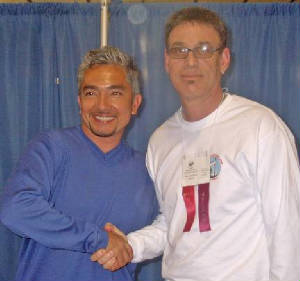As exciting as it can be to invite new puppies into your home, it is a process getting them to fully fit with your family. Potty training is perhaps the most pivotal part of making sure that your pet adapts to its new environment.
It's a process that requires patience, consistency, and an understanding of your puppy's development. But when do you know if your puppy is behind on their potty training? Can puppies be behind?
Puppy Development and Potty Training
Puppies, much like human infants, go through a series of developmental stages. Their ability to control their bladder and bowel movements improves as they age. Generally, puppies can start potty training by the age of 8 weeks. However, full control over their bladder and bowels might not be achieved until they are several months old. Key milestones include -
- 8 to 12 Weeks - At this tender age, puppies are just beginning to grasp the concept of potty training. Their bladder control is still developing, and accidents are to be expected. During this period, frequent trips outside and a consistent schedule are crucial.
- 12 to 16 Weeks - Puppies start to gain more control over their bladder and bowel movements. If consistent training efforts have been made, you should start seeing progress. They may still have accidents, but their ability to hold it for longer periods improves.
- 4 to 6 Months - By this age, with consistent potty training, many puppies have a good understanding of where and when it's appropriate to relieve themselves. However, occasional accidents can still occur, especially in new or stressful situations.
Puppy parents that are away from their dogs for too long during the day may be more at risk for accidents, as not all puppies can hold their urine for as long as they need to even if they’re “fully trained” in the sense that they know they need to go outside.
But somewhere between 16 weeks and 6 months, your pet should be able to be trained to use the bathroom for at least 6 to 8 hours with no accidents.
If your puppy doesn't show any progress in their potty training routine by the age of 4 to 6 months, it might be a sign they are behind. This includes frequent accidents indoors and no clear understanding of potty training cues.
If your puppy is over 6 months old and still displays inconsistent behavior—sometimes using the designated potty area and other times not - it may indicate a delay in their potty training. It may also indicate that they struggle with other issues, like anxiety.
Addressing Delays in Potty Training
If you suspect your puppy is behind in their potty training, consider the following steps:
- Veterinary Check - Rule out any medical issues that might be causing delays in potty training, such as urinary tract infections or gastrointestinal problems.
- Review Your Routine - Ensure that you are providing consistent opportunities for your puppy to go outside, especially after meals, naps, and playtime.
- Positive Reinforcement - Continue to use positive reinforcement techniques, rewarding your puppy for good behavior and gently correcting mistakes without punishment.
- Seek Professional Help - If challenges persist, consider enlisting the help of a professional dog trainer who can provide personalized advice and strategies.
Potty training is a journey that varies for each puppy. While most are well on their way to being trained by 4 to 6 months, some may take longer, and that's okay. The key is consistency, patience, and understanding your puppy's unique needs. If you're concerned about your puppy's progress, don't hesitate to seek advice from professionals. Remember, every puppy is different, and with the right approach, your furry friend will get there in their own time.
If you’re ready for dog training and would like help, contact Chicago Dog Trainer, today.





